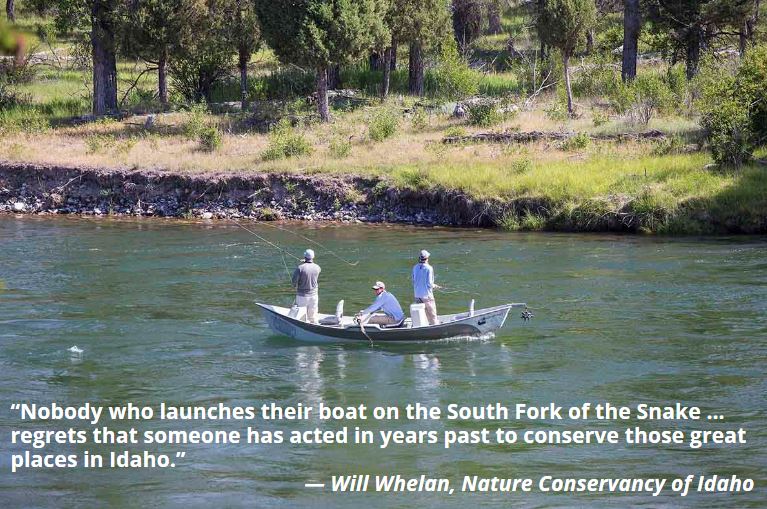 IDAHO FALLS – Garett Reppenhagen always had a love for the American wilderness.
IDAHO FALLS – Garett Reppenhagen always had a love for the American wilderness.
But after serving during Operation Iraqi Freedom and having what he calls some pretty severe experiences, spending time in the great outdoors has taken on on special meaning for Reppenhagen. It was there among pine-filled forests that he was able to reflect on his experiences and cultivate a sense of healing.
Today, Reppenhagen is the Rocky Mountain director of the Vet Voice Foundation, where he advocates for conservation issues. As a conservation activist, Reppenhagen says his healing wouldn’t have been possible without a little-known piece of legislation called the Land and Water Conservation Fund (LWCF). And if you live in Idaho, chances are you’ve benefited from it too.
Established by an act of Congress in 1965, the LWCF supports recreation and conservation projects throughout the country. Its four main programs the Stateside Assistance Program, Federal Land Protection Program, Forest Legacy Program and the Cooperative Endangered Species Fund are funded by fees from the oil and gas industry and don’t use taxpayer dollars.
If you’ve ever taken your kids to a city park in Idaho Falls or rafted on the South Fork of the Snake River, you’ve probably enjoyed land preserved by LWCF. From 1966 to 2011 the fund supplied more than $1.7 million to Bonneville County alone, many of those funds going toward the development of parks and recreational facilities.
Since 1991, the fund helped protect 9,500 acres along the South Fork of the Snake River. LWCF has also contributed to conservation efforts in Salmon-Challis and Sawtooth national forests and Grand Teton National Park.
Rob Bishop “The Land and Water Conservation Fund is broken. The law has been hijacked by special interests too close to the government and must be reformed.” Congressman Rob Bishop, R-Utah, Chairman of House Natural Resources Committee
But under a new proposal put forward by Congressman Rob Bishop, R-Utah, acquiring new public land may become more difficult.
